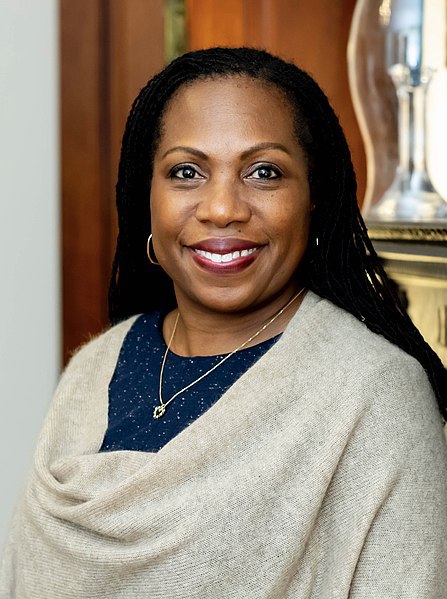
Nathalie Moreno
Southern Editor
Back in February, President Biden officially named Judge Ketanji Brown Jackson as his Supreme Court nominee. Among the candidates were two other judges, Judge J. Michelle Childs and Leondra Kruger. All three judges had one major trait in common—they are all Black women. This means that the Supreme Court will have a Black woman on its judge panel for the first time ever.
When Justice Stephen Meyer announced his retirement from the Supreme Court, the search for a replacement commenced right away. As Judge Jackson was chosen as the nominee, it caused a rift between the White House and the courthouses.
Jackson was born in Washington D.C., but grew up in Miami. A Harvard University and Harvard Law School graduate, she has since returned to Washington D.C., and lives there now with her husband and two daughters.
According to the official White House webpage, Jackson’s list of experience includes having served as a judge in the U.S. Court of Appeals and D.C.’s District Court and as Vice Chair of the U.S. Sentencing Committee.
Despite her list of previous qualifications, approval of Jackson’s nomination is not unanimous—especially among the GOP party. Among those who do not support her are Sens. Roy Blunt and Lindsey Graham.
The GOP’s main reasons to vote against Judge Jackson include her judicial philosophy, taking issue with the fact that she refuses to claim “originalism” and “textualism,” and refuses to denounce ‘court packing’—a term used to describe changes to the size of the Supreme Court, specifically expansions.
Judge Jackson herself said at the confirmation hearings that she believes “it is appropriate to look at the original intent, the original public meaning of the words.”
Republicans also say that Jackson’s record regarding child pornography cases are largely concerning, claiming she has a tendency to be more lenient on sentencing child sex offenders.
To combat this, Democrats asserted that many conservative judges have sentenced child sex offenders in the same way and that these cases are not specific to Jackson.
Republican senators also argued that Democrats have refused to accept any conservative nominees, catering the Supreme Court panel to what they see fit.
The Democratic Party, on the other hand, attributes their support to Jackson’s “credentials, experience, and evenhanded approach to the administration of justice.”
Republican senators have begun showing their support for Jackson as well, such as Sens. Mitt Romney and Lisa Murkowski.
As voting for her confirmation into the empty seat commenced, most Republican senators were clear that they do not and will not support Judge Jackson being sworn in. However, some conservative senators have begun to switch over, relaying that they will indeed support Jackson’s confirmation.
The first round of voting happened on Monday, with the Republicans of the Senate Judiciary Committee banding together to create a deadlock vote of 11-11 along party lines.
Due to the deadlock, Jackson’s confirmation moved forward to the Senate floor, where it resulted in her favor, with a final vote of 53 yeas and 47 nays.
Jackson’s confirmation proved to be an emotional time for everyone present.
Democratic Sen. Cory Booker of New Jersey provided Jackson some words of encouragement.
“I’m going to tell you right now, the greatest country in the world, the United States of America, will be better because of you,” Booker said.
Regardless of the backlash and tough journey to get to this point, it is still a moment that will be immortal in history, and people have begun to see as much.
“This committee’s action [on Monday was] nothing less than making history,” Judiciary Committee chairman Sen. Dick Durman said. “I’m honored to be a part of it.”




